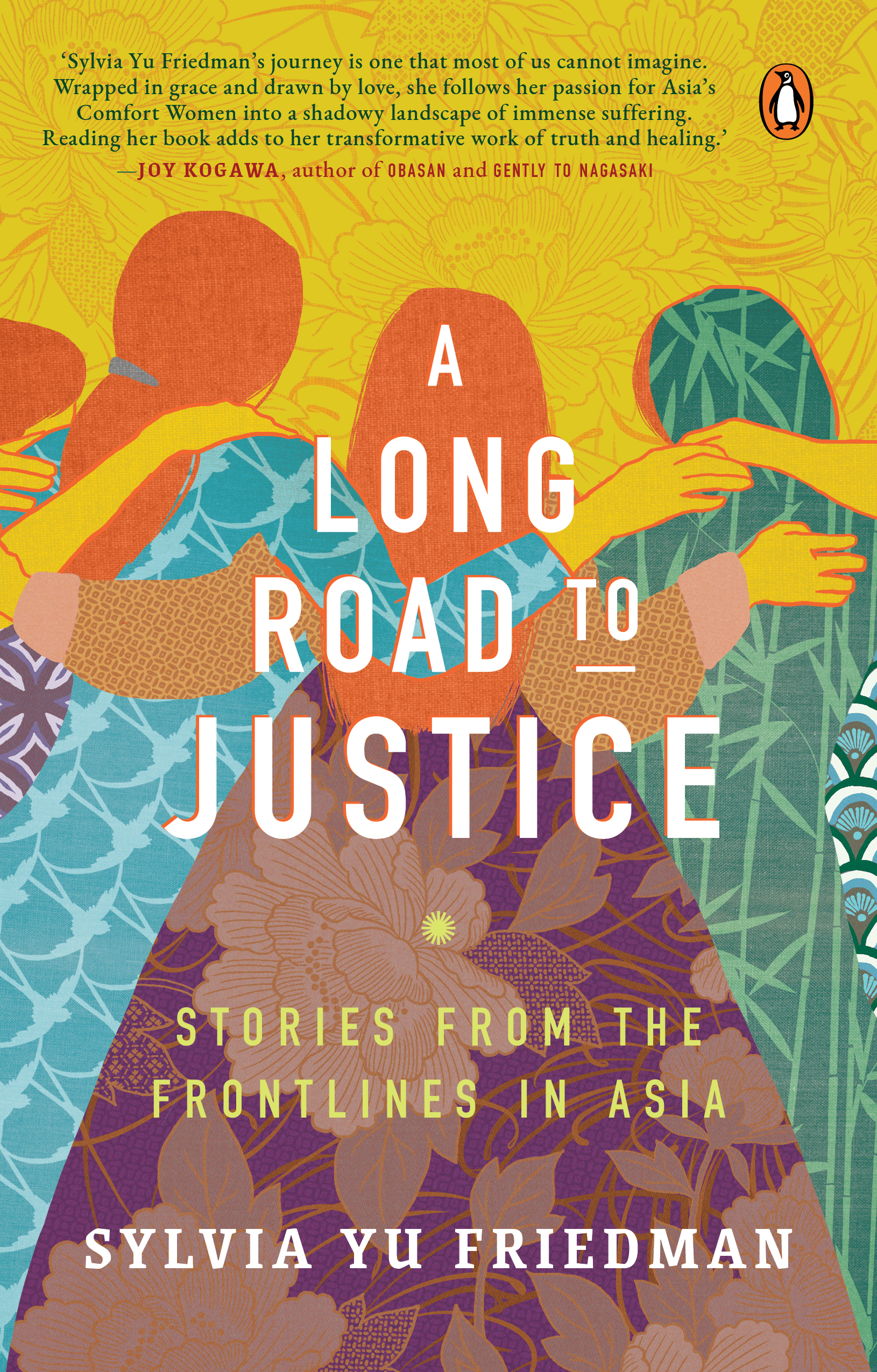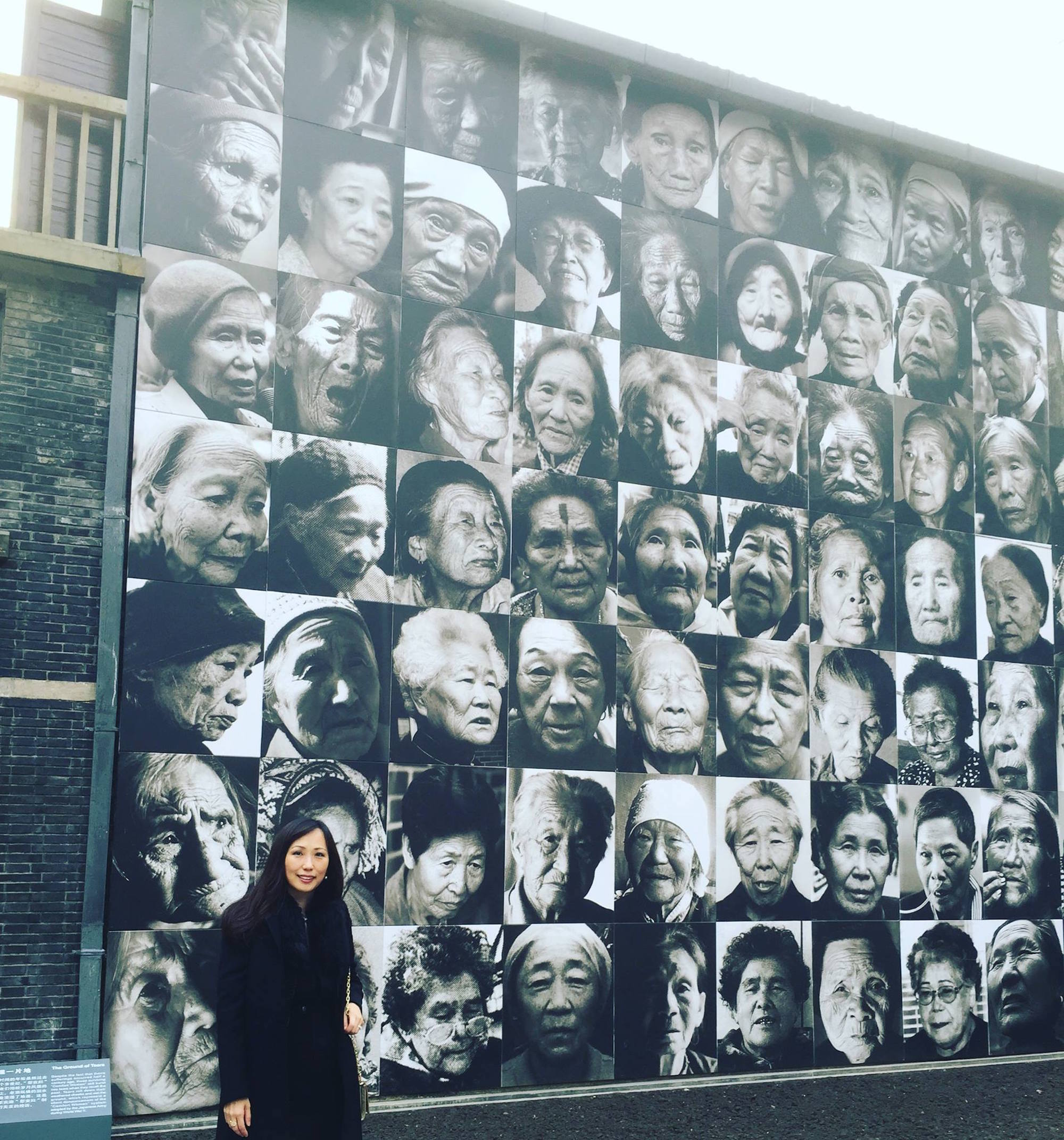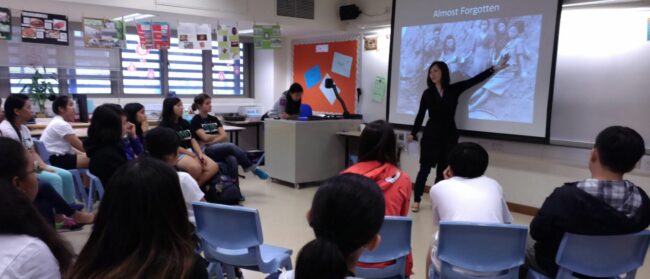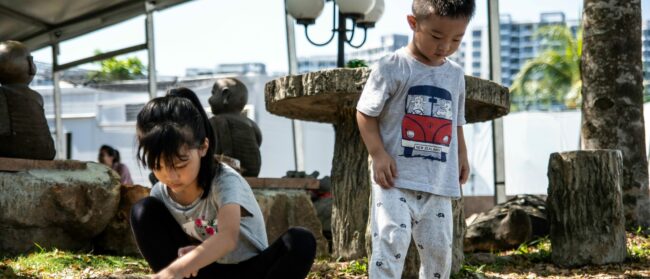While most of the world tentatively restarts global travel, Sylvia Yu Friedman is already on a journey.
It starts in the 20th century, with the investigation of the Chinese and Korean ‘comfort women’ trafficked to entertain the Japanese military before and during World War II and continues to the present day, where poverty, exacerbated by the pandemic, forces modern women into exploitative labour, sex trafficking and abuse.

These themes form the foundation of her latest book, A Long Road to Justice: Stories from the Frontlines in Asia.
The work is a geographical journey, charting Yu Friedman’s experiences across Korea, China, Hong Kong, Myanmar and Japan. It also charts the map of the victims and survivors. As many as 80% of North Korean refugee women making the perilous escape across the border with China, are sold into sexual slavery or forced marriages.
Women working on the streets of Wanchai, Hong Kong’s glitzy red-light district have come from mainland China or Africa, trafficked and tricked into prostitution. One survivor was brought to Hong Kong from Africa via Shenzhen on the false promise of money to fund her daughter’s education. Her earnings from selling her body in China and Hong Kong were taken by the traffickers to pay off her travel “debt.”
It is equally a spiritual journey. Yu Friedman shares stories of growth and recovery from both victims and perpetrators, often with the support of social enterprises and NGOs fighting tirelessly to provide the resources and opportunities to help them through their trauma.
Yu Friedman also embarks on her own journey. The book’s three parts: from ‘Door of Hope’ named after the nonprofit organisation which helped her navigate the dark underbelly of sex trafficking in Yunnan, through ‘Wartime Sex Slavery’ which draws parallels between this current profiteering and the historical struggles of Chinese and Korean comfort women, to ‘The Cycle of Slavery Continues,’ interweave the author’s own story of navigating her identity and ethnicity, her personal struggles and how her empathy, faith and passion for a cause gave her a renewed sense of purpose.

Yu Friedman’s own experience growing up as Canadian of Korean heritage, a self-proclaimed “banana” grappling Asian and western identities, has helped her to identify and empathise with interviewees who are often alienated and isolated in foreign countries and cultures.
“I’ve experienced the stinging humiliation of racial discrimination as the only Korean kid in my all-Caucasian elementary school and neighbourhood in Vancouver, Canada,” she recalled. “I’m grateful for that early experience of racism and ever since, I have been a staunch defender of racial justice.”
Racial discrimination is a well-known cornerstone of the human trafficking and prostitution trades. The Global Slavery Index has referenced discrimination against individuals based on race and ethnicity in trafficked individuals across Asia Pacific. The National Centre on Exploitation mentions that “those sold in prostitution are disproportionately women and girls of colour.”
In her descriptions of modern sex trafficking, Yu Friedman describes a brutal racial caste system where fairer-skinned women attract the most money from johns. Those at the bottom rungs – women with darker complexions or those from Vietnam – face mistreatment and physical abuse.
In the course of researching A Long Road to Justice, Yu Friedman was particularly moved by the plight of “thousands of Indonesian child maids in Hong Kong and Singapore.”
According to the International Labour Organisation, around 122 million children aged 5-14 years are forced to work to survive across APAC. Often, they are vulnerable to exploitation by unscrupulous employment agencies and forced to endure abusive employers to pay off debt bondage.
‘I didn’t understand the language, and the employer was always screaming at me,’ one 14-year old Indonesian worker working in Macau told Yu. ‘The wife would verbally abuse me. They kept my passport.”

Yu Friedman’s survivors are vulnerable but far from idealised victims. She captures the bitterness left from years of trauma and abuse, the jealousy and wariness between the residents at a Seoul shelter for elderly survivors of sex slavery.
Equally the perpetrators are not one-dimensional villains. Yu Friedman describes her determination to get into the minds of those who keep the wheels of these underground industries turning. She is fueled by an “adrenalin rush from investigating traffickers and narcissistic criminals and delving into their twisted motivations.”
A Long Road to Justice explores the financial and familial pressures and the lack of opportunities that pave the spiral into the modern sex labour and human trafficking networks when Yu Friedman meets with Guo, a former trafficker known to Door of Hope and Mary, who used to work as a mama-san in the lavish clubs of Hong Kong’s Tsim Sha Tsui district,
“So many of these perpetrators are victims of exploitation themselves,” Yu Friedman said. “It’s a missed opportunity to not be targeting them and offering alternative employment options.”
It is her meetings with three retired Japanese soldiers that Yu Friedman described as the interviews that caused her the most stress as well as “some of the most inspiring moments I’ve experienced while researching Japanese military sex slavery.”
In the book, the men share accounts of visits to comfort stations while stationed in China during World War II and the kidnap and rape of local girls when the money and occasion to visit the brothels was scarce. They also shared the desperation of lust driven by fear and the trauma they experienced at the hands of Soviet concentration camps after the war.
While there is no absolution, the men’s accounts and their search for forgiveness and closure underlines the complexity at the roots of an atrocity that has long outlived many of the men who practised it.
“I’m an offender and also a victim,” one told Yu Friedman. “That’s what war is.”
Government and law enforcement are held accountable in Yu Friedman’s investigation of exploitation of women in A Long Road to Justice. The police described in the book often lack the training, resources or to identify victims of sex trafficking. Sometimes, victims report, they still feel unsafe with the police.
“For decades, the police have been part of the problem related to addressing sex trafficking [in Asia]. Yu Friedman said. “Raids took place, but not to save victims. They were done to arrest women and girls [who were] treated as criminals.” She described witnessing officers in Thailand turning a blind eye to children who were forced by traffickers into selling their bodies.

In Pattaya’s infamous Walking Street, a well-known red light district of the Thai coastal city, Yu Friedman writes about her encounter with a 4-year old girl dancing for money. “Social workers and police were not available to rescue this girl,” an NGO worker told her.
The book also describes how in Indonesia, employment agencies forge documents and change names and birthdates to expedite the trafficking of underage children for domestic work abroad. Sometimes these documents are connected with “government departments that are responsible for this practice.” Law enforcement either fails to identify the victims, or turns a blind eye.
Faced with the issue of underage workers being trafficked from Indonesia to Hong Kong and trapped under exorbitant agency fees, the Indonesian government successfully suspended 190 employment agencies for illegal procedures related to sending workers overseas. But, as Yu Friedman pointed out, for many victims of debt bondage, the decision came too late.
The public sector cannot shoulder the burden alone and it is Yu Friednman’s firm belief that the private influence and resources hold the key to leading the way out of exploitation. A major root cause of both those who fall victim and those who become involved in the frontlines of illicit labour is poverty, and the lack of alternative opportunities to sustain themselves and their families. As Yu Friedman explained, “poverty causes two untimely deaths: death to dreams and death to self-respect.”
While the survivors of Japanese wartime sex slavery started their activism in 1991, many believe they are yet to receive closure for the trauma they endured. This first ‘Me Too’ movement in Asia has been hampered by continuing taboos and stigmas over subjects such as sexual exploitation and rape.
“It’s a relatively recent thing for victims of sex trafficking to speak out in Asia,” Yu Friedman pointed out.
She believes that change will be driven not only by the survivors and perpetrators willing to share their stories, but also the authors and media platforms who give them a voice. She is currently working on producing a film adaptation of A Long Road to Justice, which she hopes will further raise awareness of the causes she is fighting for.
“The journey of seeking justice is usually a long one,” Yu Friedman said. She is just getting started.
A Long Road to Justice: Stories from the Frontline in Asia is published by Penguin Random House SEA and available on Amazon. Our full Q&A with Sylvia Yu Friedman can be found here.


